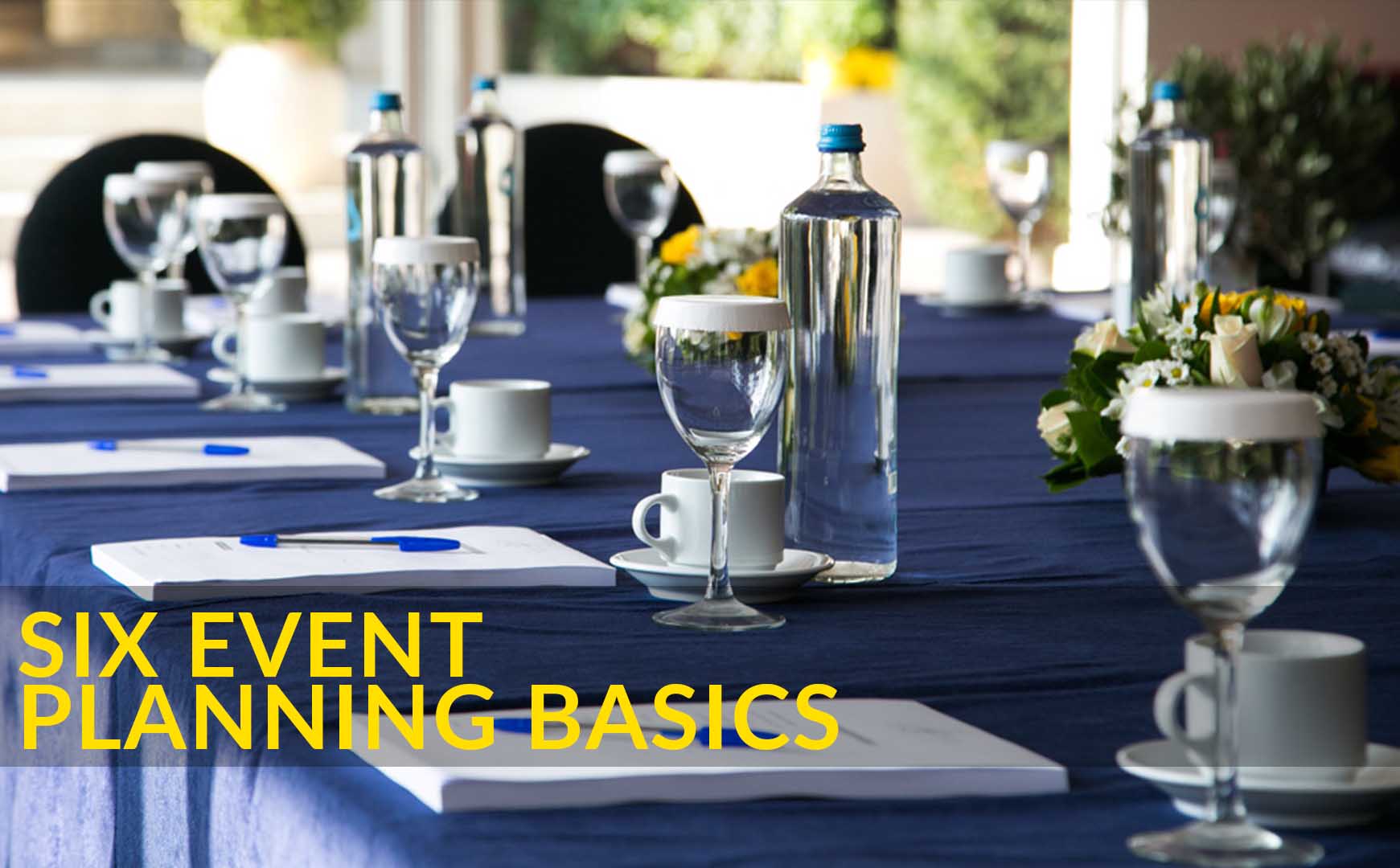You may feel overwhelmed when you first think about planning an event. It is a daunting task and it sometimes seems there are a million things that need to be done. Details can’t be overlooked. But don’t fret, if you follow some basic tips to event planning, everything will fall into place. Check out these six event planning basics to help this seemingly-frightening process move forward!
1. Create a timeline and set reachable goals
Creating a reasonable and realistic timeline is one of the most important things to do when you are planning an event. This will allow you to reach goals and deadlines for things like booking vendors or figuring out your registration system. It can also assist in breaking down your task list. Be sure to keep everything realistic and allow yourself enough time to successfully plan the event.
2. Organize a team and develop a master plan
Put together your dream team so they can help plan and put on the event. This is an essential and critical part of the planning process. When you are putting together your team, be sure to identify specific roles and responsibilities for each individual. Doing this will ensure each team member is working as efficiently as possible and that there are no overlaps in tasks.
3. Create your budget
First, identify the key items that you will need and estimate the cost for each item or service. Call the companies themselves to get the estimated price. This way there won’t be any surprise costs popping up last minute. Once you have your budget nailed down, you’ll be able to analyze and assess the potential profit.
4. Identify needs and schedule vendors
Once you have developed and solidified your budget, you’ll have a better idea of how much you are going to be able to spend. Now you can reserve and book your vendors.
5. Finalize all details and assign event day responsibilities
Your event day is almost arrived. The weeks and months of planning and organizing will all finally come into fruition soon. The last task that needs to be accomplished is to finalize all details and set the expectations for your team on the event day. Set your team up for success to the best of your ability by giving everyone his or her own responsibility on the day of the event.
6. Plan B
The last essential tip is to always be prepared for things to not go according to plan. It’s important to have a Plan B in place when things don’t go how you thought they might. If something doesn’t go as planned, which is usually the case, always keep smiling and make everything look like it was meant to be that way. No one will know the difference!
By following these six tips, you’ll be on your way to a far less stressful event planning experience.


